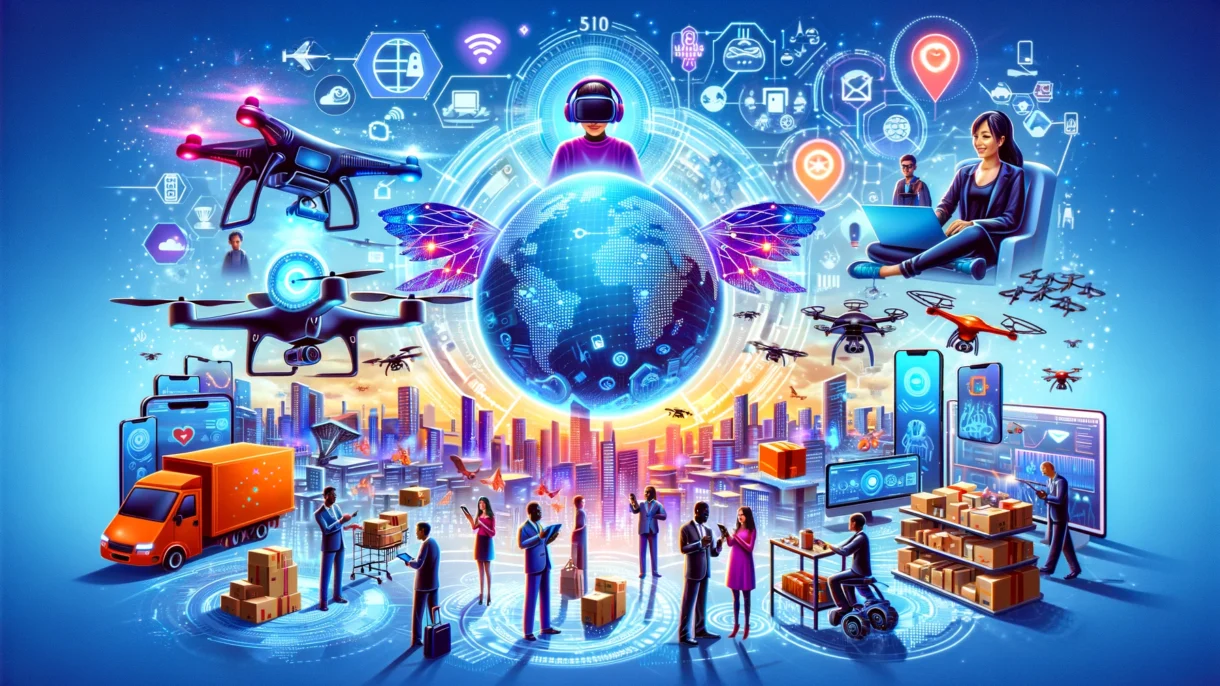The landscape of e-commerce is evolving rapidly, driven by technological advancements and shifting consumer behaviors. As we look to the future, several key trends are poised to revolutionize how we shop and conduct business online. This blog explores these transformative changes and their potential impact on the e-commerce industry and society at large.
AI-Powered Shopping Assistants
Artificial Intelligence (AI) is set to play a pivotal role in the future of e-commerce. AI-powered shopping assistants will provide personalized shopping experiences, offering product recommendations tailored to individual preferences and past behaviors. These virtual assistants will enhance customer service by handling inquiries, processing orders, and even assisting with after-sales support, making online shopping more efficient and enjoyable.
Drone Deliveries
The advent of drone technology promises to revolutionize the logistics of e-commerce. Drones will enable faster, more efficient delivery of goods, reducing delivery times from days to mere hours. This shift will not only enhance customer satisfaction but also reduce the carbon footprint associated with traditional delivery methods. Companies like Amazon are already experimenting with drone deliveries, signaling a future where this becomes the norm.
Augmented Reality (AR) Shopping Experiences
Augmented Reality (AR) is transforming the way consumers interact with products online. AR technology allows customers to visualize products in their real-world environment before making a purchase. For example, shoppers can see how a piece of furniture will look in their living room or how a new outfit will fit without physically trying it on. This immersive experience reduces uncertainty and increases consumer confidence in online purchases.
Automated Warehouses
Automation in warehouses is another significant trend shaping the future of e-commerce. Automated systems, including robots and AI, will streamline inventory management, order processing, and packaging. These technologies will enhance efficiency, reduce human error, and lower operational costs. Companies investing in automated warehouses will be better equipped to handle the growing demand for online shopping.
Global Online Marketplaces
The globalization of e-commerce is breaking down geographical barriers, allowing businesses to reach a worldwide audience. Online marketplaces such as Alibaba, Amazon, and eBay are expanding their reach, enabling small and medium-sized enterprises (SMEs) to compete on a global scale. This trend democratizes access to international markets, fostering innovation and economic growth.
Conclusion
The future of e-commerce is bright, with numerous technological advancements set to transform the industry. AI-powered shopping assistants, drone deliveries, augmented reality experiences, automated warehouses, and global online marketplaces are just a few of the innovations that will reshape how we shop and conduct business. As these trends continue to develop, they will bring about significant changes on the ground, enhancing convenience, efficiency, and global connectivity in the world of e-commerce.


